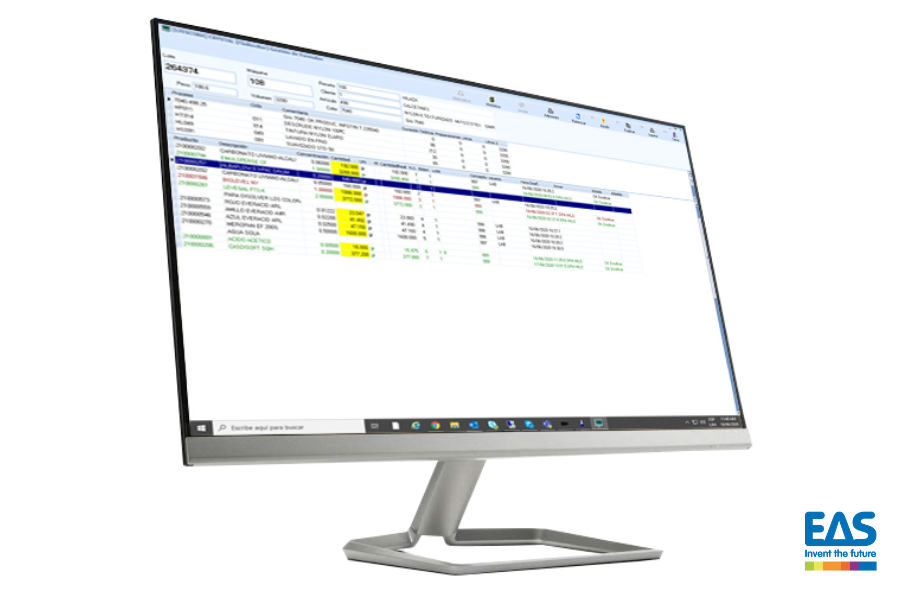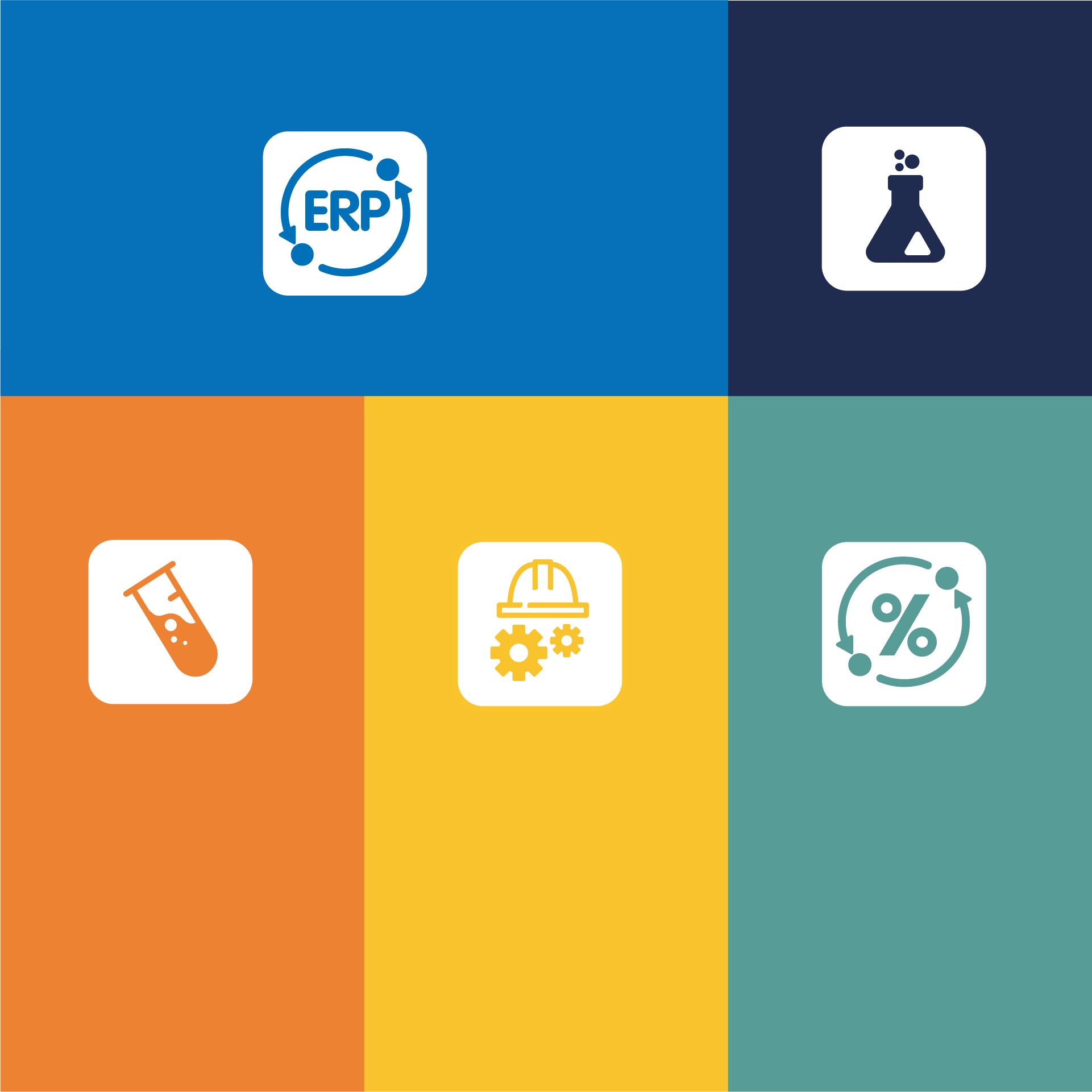Why MES software is necessary for textile production?
In the textile industry, there are several computer programs used to manage each of the departments of the company. Among them, we can find management, manufacturing control, administration, among others, …

In the textile industry, there are several computer programs used to manage each of the departments of the company. Among them, we can find management, manufacturing control, administration, among others, and their adaptation will depend on the size of the company, production needs, and other relevant factors.
In a previous publication, we talked about the three types of software most used in the textile industry: SCADA and PLC systems, ERP systems, and Manufacturing Execution System (MES) software.
Now that we know what each type of software does in a generic way (if you are still not clear, click on the link above to read the publication mentioned above), let’s focus on MES software to learn more about why this system is essential in any industry, especially in textile production.
Key points of MES software for the textile industry
The MES software (Manufacturing Execution System), is the system in charge of centralizing all the data obtained from the production machines in real-time.
By processing this data, we will obtain objective and reliable information about the manufacturing process to organize the production planning, and it will also help in the decision-making for optimal development.
The MES system is based on 5 points:
1. Planning and execution of manufacturing or production orders
It is in charge of planning, executing, and sending all the information to the machines to deploy production plans. Many systems have planners that allow a high margin of maneuver to include urgent orders, or to know the real-time in which we will have the finished product.
2. Real-time control with accurate data
The data collected by PLC and SCADA systems are processed by this software. In this way, we can control and analyze what happens in our production and allowing us to make decisions based on real and accurate data. It also allows the control of stocks such as the warehouse of replacement parts or raw materials. Everything is centralized in the system.
3. Calculation of efficiency OEE (Overall Equipment Effectiveness)
This calculation system measures the effectiveness of industrial machinery, helping us to quantify the efficiency and productivity of the different processes. This will allow us to know the capacity at which the machine has worked and if we can adapt our processes to obtain more performance.
4. Optimization of production costs
Once all the data and efficiency are collected, is analyzed to make decisions to improve manufacturing processes. With this information, we will be able to elaborate production reports that will help us to identify problems and look for adequate solutions.
5. Interconnection of systems throughout the plant
The entire production plant operates under the same system, centralizing all processes such as weaving, dyeing, and finishing.
With this system, we also achieve the centralization of measuring devices such as scales or management systems such as intelligent warehouses by creating a single control point where all systems transfer the information.
A multifunctional software with great benefits
The greatest advantage of implementing an MES system is the possibility to make decisions based on the data obtained, giving us precision and certainty when planning production processes, and having a drastic impact on the daily work with positive benefits such as:
- Reduction of production costs: By optimizing all resources and measuring resources, every drop of water and chemical used, we can optimize our processes in order to save on raw materials and have reliable information to establish the final prices of the manufactured products.
- Increased efficiency: By measuring the data regarding the efficiency of each machine, we can focus on those processes that need more attention to obtain better results, being able to establish a coordinated action plan, and ensuring results.
Additionally, we can start our journey towards sustainable production, since it offers the possibility of establishing parameters that allow us to contribute to the reduction of natural resources and cushion the environmental impact.
- OEE performance measurement: By measuring and monitoring the efficiency of the processes, we will be able to shorten delivery times, increasing the satisfaction of the final customer who will always find his order on time.
- Improvements in the quality of the final product: All these factors also reflect positively on the quality of the final product since nothing is left to chance in production.
MES solutions for everyone
The MES software is addressed to those responsible for day-to-day production management, such as production managers, plant supervisors, and employees in charge. They can use it to implement custom-tailored production schedules and adapt to demand at any time.
This type of system also includes resource management with which we can know parameters such as time and resources dedicated to each production line. An example would be the programming and assignment of operators in charge of executing the tasks, the inventory control of the raw materials used or the planning of the preventive maintenance of the machines.
The management of all these parameters will allow us to know the time and effort used for each process, avoid problems of machine availability, and establish a real planning in accordance with the sales department, among many other benefits.
4.0 technology at the service of the textile industry
Thanks to data storage and analytics, the management system makes it possible to establish product traceability and allows the use of Blockchain technology through the certification system.
Another highlight is the work methodology based on a predictive model used previously, called Machine Learning.
The digitalization of the textile industry also provides a variety of sustainability benefits, starting with the drastic elimination of the paper support used for daily work.
This is a big step in opening up a whole range of possibilities for implementing sustainable manufacturing that rigorously applies sustainable procedures developed by large companies or certifications such as the OEKO-TEX Standard 100 or the Global Recycled Standard.
Industry 4.0 has come to revolutionize all industrial fields and in the textile sector. Provides the opportunity to improve production processes, with a positive impact on the economic, operational areas, better handling of resource utilization, environmental impact, and better management on the supply chain.
If you want to join Industry 4.0 and improve the processes in your textile company, contact us! It will be a pleasure to help you.





